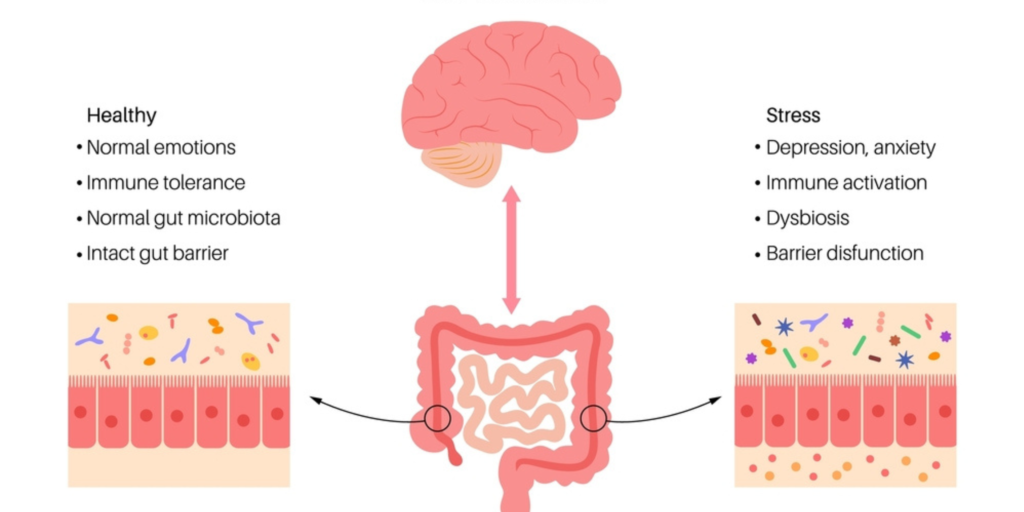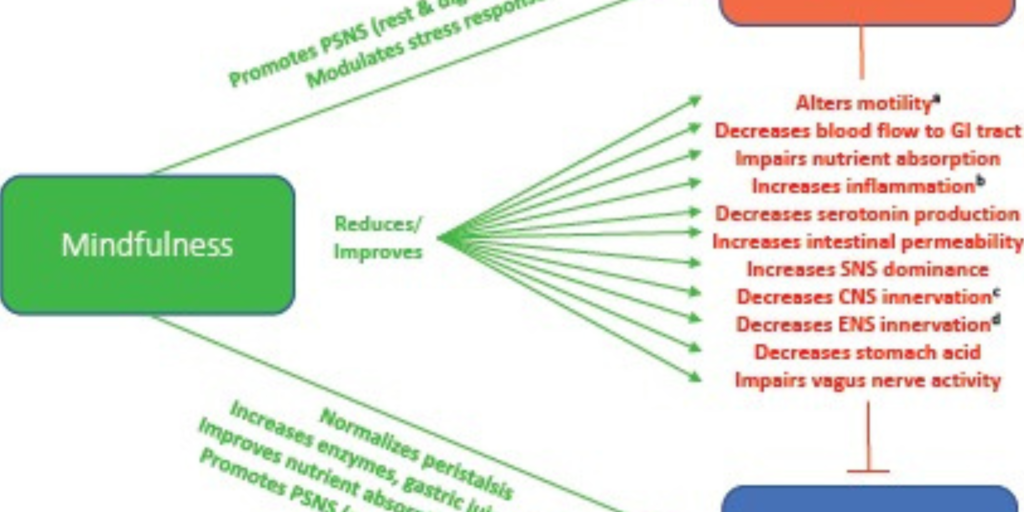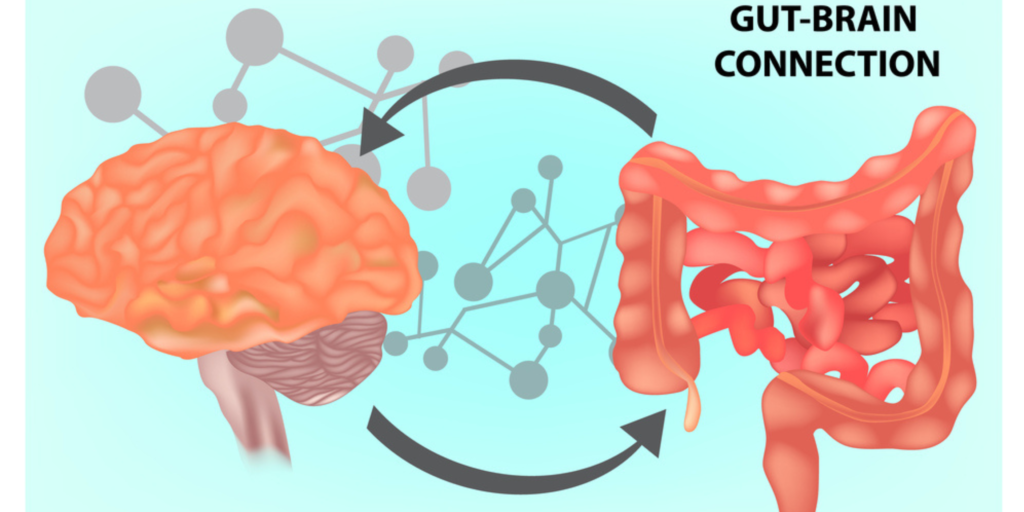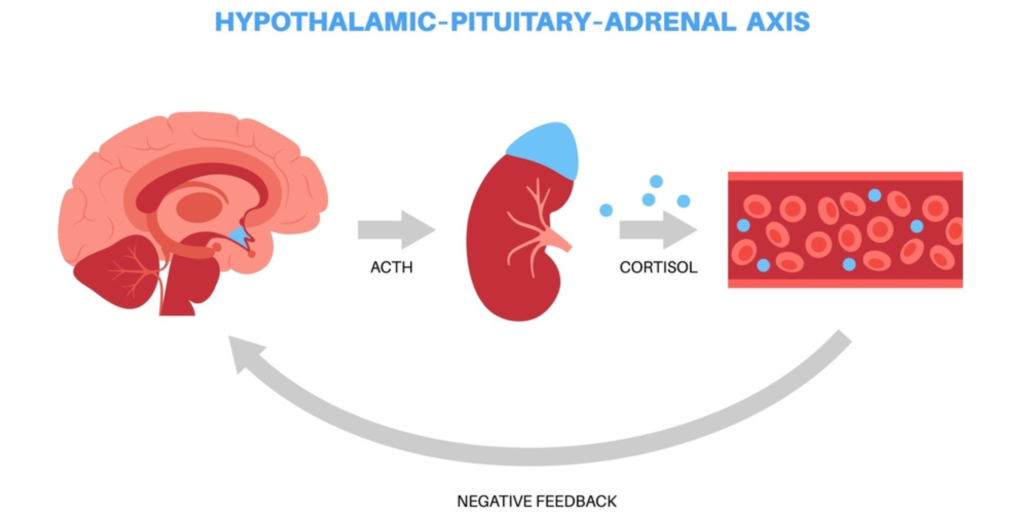Sneak Peak
“Mindful Eating Reduces Stress” Discover how eating and enjoying your meals can reduce stress. It can also improve your well-being. Julia found peace and joy in her kitchen. She did this by practicing mindful eating. She focused on each bite and savored the experience. Learn about the strong link between stress and digestion. See how mindful eating can help balance your body and mind. The article reveals seven simple and joyful ways to make your meals calm and stress-free. The tips range from understanding your hunger cues. to feeling more gratitude for your food. Join us on this journey to a healthier and happier you!
Introduction
Julia stood in the kitchen, chopping fresh vegetables for her stir-fry. She noticed the tension in her shoulders. Work and family stress had been weighing on her. Lately, she often found herself reaching for unhealthy foods to cope. But today, something felt different. Julia decided to slow down. She would approach making her meals .
She diced the colorful produce. Julia tuned into their sights, smells, and textures. She focused on the steady rhythm of her knife on the cutting board. She felt her breath deepen and the anxious thoughts begin to fade. By the time she sat down to eat , Julia felt calm and present. She hadn’t felt this way in months. This small shift in her approach to food had already begun to lower her stress. She was eager to explore the deeper benefits of mindful eating.
Understanding the Stress-Digestion Connection

Functional gastrointestinal disorders (FGIDs) are linked to stress. These include irritable bowel syndrome (IBS) and functional dyspepsia. These conditions increase healthcare use and decrease quality of life. Understanding the close link between stress, the nervous system, and digestion is key. It is the foundation for using mindful eating in practice.
Stress and Functional Gastrointestinal Disorders
Many studies have shown a strong link. It connects stress and digestion to the start and worsening of gut disorders. Chronic stress can upset the gut-brain balance. This can cause many digestive issues, including IBS and other FGIDs.
The Impact of Stress on Healthcare and Quality of Life
Stress-related digestive disorders burden the healthcare system. They increase healthcare use and harm the quality of life of those affected. People with FGIDs often have repeat symptoms. These include pain, bloating, and changed bowel habits. The symptoms can affect their daily life and well-being.
Mindfulness and Mindful Eating

Mindfulness is non-judgmental awareness of emotions and body sensations. It has various branches, including meditation and mindful eating. These interventions rely on mindfulness. Studies have shown that they bring mental and physical benefits. This makes them a valuable tool for reducing stress and improving well-being.
Mindfulness encourages people to be present. They tune into the sensations, thoughts, and feelings. These arise during daily activities, like eating. Mindful eating involves bringing conscious awareness to nourishing the body. This fosters a deeper connection with food. It includes one’s hunger and fullness cues and the process of eating.
Cultivating mindfulness and mindful eating has many benefits. These include less stress, better digestion, and a healthier relationship with food. This view of nutrition and self-care can impact a person. It affects their physical, mental, and emotional well-being.
You May Also Like:
Enhance Mindfulness Through Movement 5 Powerful Ways
Mindful Eating Reduces Stress

What is Mindful Eating?
Mindful eating is eating while in a state of non-judgmental awareness. It means shifting attention to the food and the mind-body connection. This approach allows for a deeper exploration. It explores the complex experience of mindful eating. This experience is both cognitive and biological. By eating , people can gain many benefits. These include less stress, better digestion, and a healthier relationship with food.
Benefits of Mindful Eating
The benefits of mindful eating go beyond reducing stress. This practice can lead to better awareness of hunger and fullness cues. It promotes a more intuitive and healthy relationship with food. Also, mindful eating improves digestion. It helps nutrient absorption and fosters gratitude for our meals.
“Mindful eating is not a diet, but a way of relating to food that can lead to greater health, happiness, and freedom.” – Jan Chozen Bays, MD, author of Mindful Eating
By practicing mindful eating, people can have a big change in their well-being. This includes less stress. It also means better mental and physical health. And a happier relationship with eating.
The Stress-Digestion-Mindfulness Triad

The triad links digestion, the nervous system, hormones, stress, and mindfulness. It is a hypothesized construct. This connection is crucial. It regulates many aspects of our health.
The Central Nervous System and Digestion
The brain and spinal cord make up the central nervous system. It plays a key role in regulating digestion. It receives and processes information from the gastrointestinal tract. It coordinates the complex interactions. These are between the central nervous system. the autonomic nervous system, and the enteric nervous system. These systems are also known as the gut-brain axis.
The Autonomic Nervous System
The autonomic nervous system controls body functions. It is involuntary. It includes digestion. It has two parts: the sympathetic and parasympathetic divisions. They work together to keep the body’s balance. Stress can disrupt this balance. It causes digestive issues and other imbalances.
The Enteric Nervous System
It is often called the “second brain.” It is a complex network of neurons. It controls the gut. This complex system communicates with the central nervous system. It lets the gut and brain respond to each other’s signals. Disruptions in this gut-brain axis can cause various gut disorders.
Gut and Brain Bidirectionality
The central nervous system and enteric nervous system communicate via neurotransmitters. They send signals in both directions between the gut and the brain. When the brain perceives stress, it releases chemicals that can disrupt digestive function. But when the gut-brain becomes disturbed, it informs the brain of this distress. This leads to mood and health problems. Mindful eating may help create an environment that boosts digestion. It also reduces the harm of stress.
HPA-Axis and the Chronic Stress Response

Long-term stress activates the hypothalamic-pituitary-adrenal (HPA) axis. This system is a key part of the neuroendocrine system. This chronic HPA-axis activation leads to high cortisol levels. They can harm the digestive system.
Consequences of Chronic Stress on Digestion
High cortisol is a hallmark of the body’s stress response. It can cause leaky gut, also known as impaired intestinal permeability.” This condition can cause the body to absorb micronutrients . This leads to deficiencies. Also, chronic stress can cause belly pain or discomfort. It can also cause local and body-wide inflammation.
The HPA-axis and chronic stress harm digestion. They can worsen and continue functional stomach disorders, like IBS and dyspepsia. Dealing with this mix of stress, the HPA-axis, and digestion is key. It’s key for improving well-being.
Mindful Eating Reduces Stress: 7 Joyful Ways

Eating can be a powerful tool. It reduces stress when you do it daily. This section outlines seven ways mindful eating helps you. It can help you have a more joyful and stress-free relationship with food.
- Mindful eating fosters a positive relationship with food. It encourages you to view food with curiosity. It also encourages you to view food with appreciation. It also urges you to avoid judging. This approach helps you build a better relationship with the food you eat. It will be more positive and nourishing.
- Mind-Body Connection: Mindful eating lets you be present at mealtimes. It helps you notice the physical and emotional sensations of eating. This promotes a stronger mind-body link.
- Eating helps digestion. It lets your body better absorb food. This leads to better health and well-being.
- Mindful eating makes you more aware of your hunger and satiety cues. It helps you make conscious and balanced decisions about when and how much to eat. This is better than relying on emotional or stress-driven impulses.
- Mindful eating encourages you to savor each bite. It helps you appreciate the food and nourishment it provides. This fosters a sense of gratitude.
- Mindful eating practices encourage eating . They emphasize chewing and eating at a relaxed pace. This can reduce stress and make eating more satisfying.
- Mindful eating means tuning in to your body. It means cultivating better awareness of hunger and fullness cues. It’s about its hunger and fullness signals. It can help you develop an intuitive and healthy approach to eating. This leads to better stress management and well-being.
Add these joyful and stress-reducing aspects of mindful eating to your daily life. This can help you take big steps to a more balanced and nourishing food relationship. This will support your health and well-being.
Clinical Application of Mindful Eating
Recognize the benefits of mindful eating. Healthcare providers are exploring ways to add this approach to clinical practice. One way is through mindfulness-based interventions. They often include elements such as meditation, breathing exercises, and discussions.
Mindfulness-Based Interventions
Mindfulness is the basis for these interventions. They have shown to promote positive behavior changes. They help individuals struggling with many health concerns. These include weight management, stress, and eating behaviors. Mindful eating can lead to better results. It does this by increasing awareness of internal signals, emotions, and external triggers. These include weight loss and better management of emotional stress.
Positive Behavior Change
The calming effects of mindful eating reduce stress. This is a key factor in these positive outcomes. By valuing a better relationship with food and eating, people can gain more control. They can also gain well-being. This, in turn, supports good behavior change and better health.
Reduce Your Stress with Mindful Eating Today
By adding mindful eating to your routine, you can reduce the stress in your mind and body. To start a mindful eating program and manage stress, contact the well-trained practitioners. They are at the Evexias Health Solutions network.
These professionals can work with you to make a personalized treatment plan. It will use mindful eating and other integrative therapies to help you be well. Through this teamwork, you can learn to sense your body’s signals better. You can also learn to manage emotional and stress-related eating. And, you can learn to build a joyful relationship with food.
Use mindful eating to manage stress. It will empower you to control your wellbeing. You’ll start a journey to reduce stress and improve your life.
Conclusion
Mindful eating is a simple and powerful way to reduce stress and enjoy food more. By paying attention to what we eat, how we eat, and how our body feels, we can improve our health and happiness. Julia’s story shows that taking time to be present while cooking and eating can bring calm and joy.
When we practice mindful eating, we can feel better in many ways. It helps us listen to our bodies and understand when we are hungry or full. This can stop us from overeating. It can also stop us from eating for the wrong reasons, like during times of stress or sadness. Mindful eating can also help our digestion, making it easier for our bodies to use the good stuff in our food.
By slowing down and tasting our food, we can feel more grateful and happy about our meals. It’s not about what we eat, but also about enjoying the process of eating. This can make every meal a special moment of peace and pleasure.
Mindful eating is more than a way to eat. It’s a way to live with more awareness and joy. It can help us feel less stressed and more connected to our bodies and our feelings. By eating daily, we can improve our well-being. We can also have a healthier, happier relationship with food.
Start your mindful eating journey today and discover the joy and calm it can bring to your life. Remember, it’s not about being perfect; it’s about being present and enjoying each moment, one bite at a time. Mindful Eating Reduces Stress









